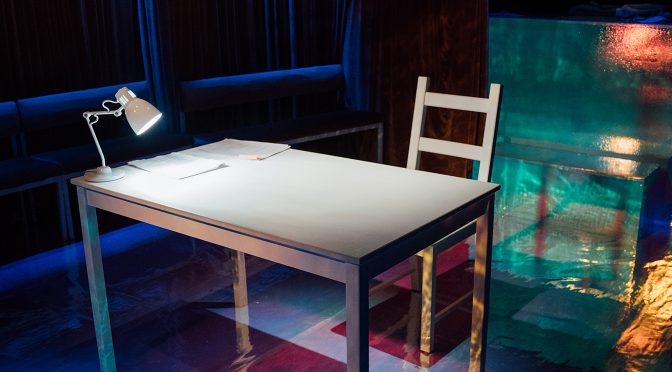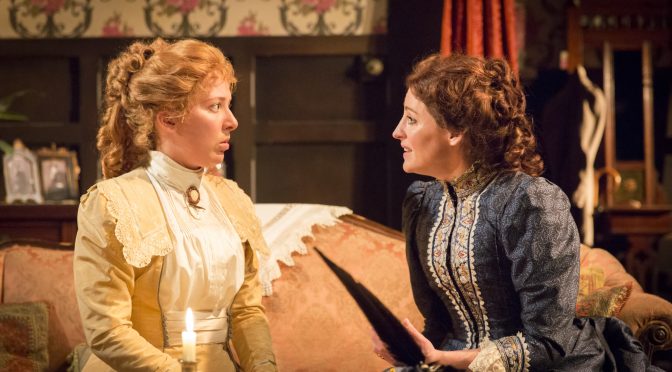Theatregoers get used to professionalism and perfection. This blog is full of questions about choices and quibbles about generally (very) good shows. So the idea of a production with the cast coming cold to the script – with different performers every night – has a peculiar appeal. A deliberate move away from polish is novel and oddly exciting.
Visiting North London from the Gate Theatre, Dear Elizabeth is a presentation of letters between American poets Elizabeth Bishop and Robert Lowell. It is love story, of sorts, that takes the decades and complexities of an original romance in its stride. But the performers don’t know what the letters contain or what the ending will be. The result is a sense of adventure – and fun.
Game for the challenge the night I attended were performers Martins Imhangbe and Roberta Livingston. The run will pair an established actor with a recent graduate – a nice idea. But I suspect the readings will generally remind those of us who hate the idea of speaking aloud that actors – through their training – are a different breed! Imhangbe and Livingston were both assured and charismatic, and showing how much they were enjoying themselves proved contagious. Receiving packages of letters – including instructions – and props throughout, they always had the audience on their side.
Of course, there were more stumbles over words than usual. But with beautiful speaking voices and some magical ability to inject emotion into phrases off the bat, we almost need reminding that Imhangbe and Livingston hadn’t seen the text before. And here is where the skill behind the show comes in – that spontaneity is cleverly controlled.
Only the cast is unprepared! The carefully constructed script by Sarah Ruhl bring us close to the poets’ lives and love affairs with ease. All kinds of topics – focusing on health and work – are skilfully covered, providing considerable insight. And Ruhl has a careful eye on the ethical implications of her project with a brilliant section that has Bishop criticising Lowell for using another person’s biography in his art.
Director Ellen McDougall, with the aid of designers Moi Tran, Jessica Hung Han Yun and Jon Nicholls (set, lighting and sound, respectively) retains a surprising degree of control. Paying special attention to the pace of the performance, factoring in time for the actors to work out what the hell they do next, without pausing the action, is brilliantly done.
The performers and audience are together in taking cues at the same time – the music and lighting point us towards responses simultaneously. The concept behind Dear Elizabeth only goes part of the way to ensure the evening is a success. But making theatre so immediate – so in the moment – is especially timely after we’ve missed the stage for so long. The show also reminds us how varied the talents behind any production are. And I hope all involved take this blog as a kind of thank-you letter.
Until 18 September 2021


